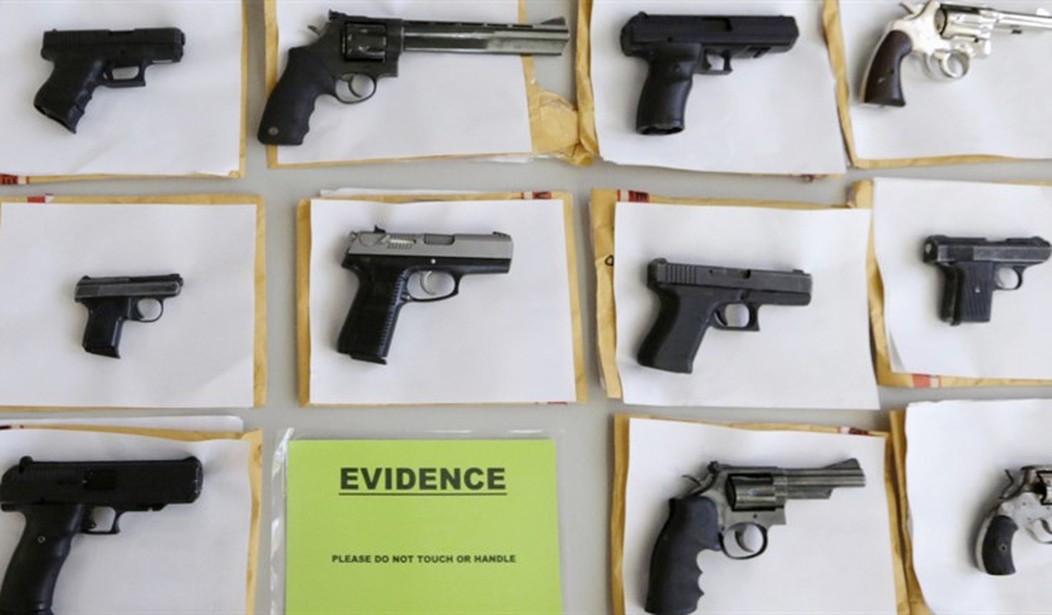As anyone who keeps an eye on the news no doubt already knows, 2021 saw a significant spike in violent crime in cities across the United States. This was particularly true of murders and homicides, with increased incidents of shootings being a daily feature. But what was the underlying cause of this steady increase in killings? Over at the Atlantic, Jeff Asher and Rob Arthur think they’ve spotted something in the numbers that points to an answer. They note another trend that we’ve covered here on a regular basis, that being the surge in gun sales and background check requests that’s been seen for the past two years. Somehow the authors have put those two disparate data points together and concluded that the reason that more people are being shot is that more people are seeking to legally purchase firearms. But as we’ll see, this analysis relies on wishful thinking more than any sort of useful data.
After murders in the United States soared to more than 21,000 in 2020, researchers began searching for a definitive explanation why. Many factors may have contributed, such as a pandemic-driven loss of social programs and societal and policing changes after George Floyd’s murder. But one hypothesis is simpler, and perhaps has significant explanatory power: A massive increase in gun sales in early 2020 led to additional murders.
New data from the Bureau of Alcohol, Tobacco, Firearms and Explosives (ATF) suggest that that indeed may have been the case. According to the data, newly purchased weapons found their way into crimes much more quickly and often last year than in prior years. That seems to point to a definitive conclusion—that new guns led to more murders—but the data set cannot prove that just yet.
Carefully note the disclaimer that the authors include in the final sentence of the second paragraph of the article. “But the data set cannot prove that just yet.”
Personally, I think they could have left the “just yet” part of the sentence out entirely. The data set is going to have a hard time proving that two largely unrelated statistics have much of anything to do with each other. The number of murders was definitely up significantly, as were the numbers of background checks and gun sales. But as the FBI’s annual crime data reports have shown for years, the number of murders committed using legally owned firearms is minuscule compared to the number of killings done with illegally obtained weapons.
One of the most common reasons cited by first-time gun buyers in cities around the country was a concern over rising crime rates and violence in the streets. If the authors at The Atlantic want additional proof, they need look no further than a study published last July at the Washington Post (of all places) saying specifically that the “homicide surge was not linked to increased gun sales.”
The one bit of data highlighted by Asher and Arthur that actually does ring true is the alarming rate at which legally purchased guns are showing up at the scenes of gun crimes. The so-called “time to crime” rate, measuring how long it takes for a legally purchased firearm to be recovered at a crime scene, has definitely decreased. But yet again, that offers no indication of legal gun owners committing crimes. It’s an indicator of the fact that robberies and burglaries both increased in many cities and one of the most popular items to steal are (wait for it…) guns. Those guns are then quickly sold on the black market and show up at crime scenes. If the authors of this article want to make the argument that we need to do a better job of educating new gun owners on the safest and secure ways to store their firearms, they won’t get any argument from me.
The reality is that people with no criminal background who go through background checks and legally purchase firearms are not the ones who generally wind up committing gun crimes. The exceptions are horrible cases of domestic violence, but those are far overshadowed by gang violence. The gang members buy their weapons on the black market or the gray market through straw purchases. Most of them couldn’t pass a background check if their lives depended on it. And the authors at The Atlantic who are trying to distort the data to make some sort of argument against legal gun sales aren’t doing anyone any favors with this sort of analysis.







Join the conversation as a VIP Member